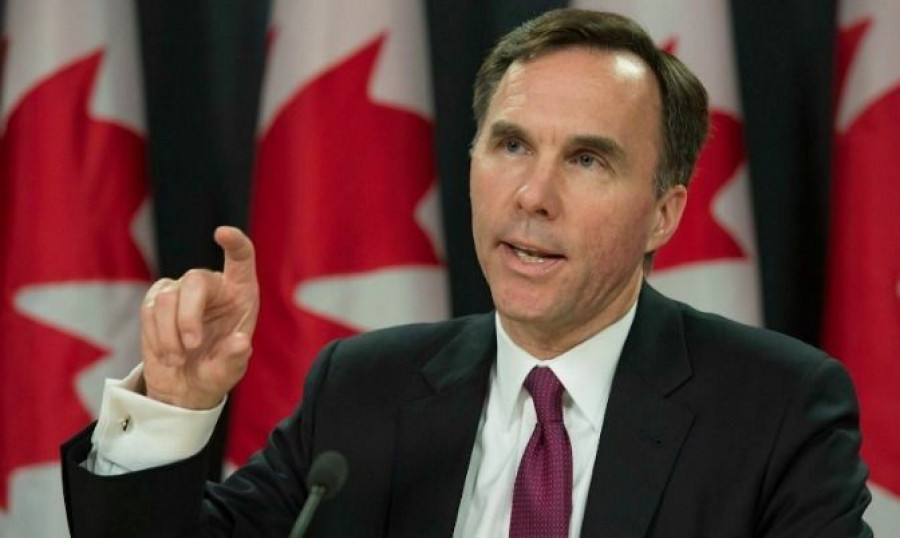Doreen gets a call from her accountant (Karen), and expects that this is the regular reminder to review the books, and ensure that the restaurant is on target for the year end, and if not, what tweaks are necessary.
Karen advises Doreen that whilst everyone was busy enjoying summer, the Federal Government indicated that they have been long concerned about persons using corporations to avoid paying their fair share of taxes, rather than investing the profits back into their business, and maintaining their competitive advantage. To that end, on July 18th, the Minister of Finance, Bill Morneau, put out a 63 page consultation paper on proposed tax changes, and has given the public 75 days to respond, that is by October 2nd. That means, the article has to be read, the complex tax implications have to be deciphered, counterproposals have to be designed to recommend to the Minister in order to allay the Federal Government fears, and finally as a “back pocket” protection, the tax experts have to come up with strategies to mitigate the negative impacts of these proposals.
Doreen’s eyes glaze over, because surely this has nothing to do with her and Ralston’s little restaurant. Additionally, she is going off to have knee surgery in January, so she really has no time to listen to this complicated tax issue that won’t really affect her, as she has important sales targets to meet. Karen asks if she can come over and discuss this issue with Doreen and Ralston. Reluctantly, Doreen agrees.
At the meeting Karen indicates that the new proposals are targeting 3 particular areas:
1. Sprinkling income using private corporations – paying dividends out of the business to family members who are subject to lower income taxes. Similar to how Doreen and Ralston pay dividends to their 20 year old son Kirk. This is how he gets his money to fund some of his university expenses, since he is a shareholder in the restaurant, and he helps out in the restaurant while on summer break
.
2. Holding a passive investment portfolio inside a private corporation – This is referring to the $30,000 in GIC that Doreen and Ralston have been able to invest out of company profits over the last few years, in order to secure some money for their pension. At that time , Karen had advised them that it was best to keep the investments in the corporation, since for every after tax dollar of profit in the corporation, they are able to invest $85, but if they took it out of the corporation and invested it, they would only be able to invest $80 (and even less if they had more money to invest), since it would be taxed at their personal tax rate
.
3. Converting private corporation regular income into capital gains – this is usually used when there is another corporation (sister corporation) which would receive the income, and then through complex tax strategies, convert the income received into capital gains (which is taxed at 50% of the regular rate). Karen, Ralston and Doreen agreed that this does not really impact Doreen and Ralston’s tax position, as they have only the one corporation, and do not use any sort of complex tax strategies, like the ones that the big restaurant chains may use, since they can’t afford to pay the tax specialists. Besides, the restaurant is operating well, and makes about $100,000 in net profit. Just enough to meet the family’s needs.
All agree that Ralston and Doreen are in the “middle class” that the government is seeking to protect.
Further discussions reveal that after Karen has tried to read through the 63 page document, consult with other tax specialists and read the myriad of technical articles out there, there is legitimate concern that the proposals may in fact impact Ralston and Doreen. Specifically, the payment of dividends and, the holding of investments in the corporation.
The Impact
As mentioned earlier, the restaurant makes net income (before taxes) of $100,000. The corporate tax for the restaurant is $15,000, leaving $85,000 to distribute and use for the family’s needs. Ralston and Doreen each take $35,000 in dividends, pay $10,000 in dividends to Kirk, and leave the other $5,000 in the business by adding it to the restaurant’s GIC account. The personal tax paid by the family on the dividends distributed is **$1,125, making their total tax bill (personal and corporate) $16,125.
With the proposed changes, a new concept called “split income” is introduced. If income is deemed “split income”, it will be taxed at the top personal marginal rate, and lose any entitlement to the personal tax credit. Dividends and capital gains paid from a private corporation (such as the restaurant) is included in the different types of income defined as “split income”. However, if that income meets a reasonableness test, it will be excluded, and not deemed as split income. Therefore, the proposed rules won’t apply in that instance.
Eager to ensure that their dividends will be deemed as “excluded”, Doreen and Ralston ask Karen to explain what makes the dividend “excluded”. Karen explains, that according to the new section of the Income Tax Act, if the dividend received does not meet a reasonableness test, then it will be deemed split income. Specifically, if the dividend is in excess of what the restaurant would pay to an arms-length person (not a family member or related person), taking into account:
1. the functions the recipient performed in the business,
2. the assets the recipient contributed to the business
3. the risk the recipient assumed in respect of the business, and
4. any other amounts already paid to the recipient in the past
then it will be split income, and therefore, will not be treated as “excluded”. Karen also points out that these conditions are even more onerous on persons between the ages 18 to 24 (such as Kirk).
Specifically Kirk would have to:
1. be actively engaged in a regular, continuous and substantial basis in the restaurant,
2. receive no more than the maximum allowable return on assets contributed to the business (as defined by legislation), and
3. take into consideration all amounts paid to him by the corporation (eg., if he also received salary, wages or management fees from the corporation)
Doreen is understandably frustrated with these definitions, but starts to see the potential implications of this on her business in 2018. Doreen will have to take time off in January 2018 for her surgery, and therefore Kirk may have to come in from university on the weekends and give a hand to Ralston when the restaurant gets its busiest. In fact, the doctors say she should plan to be off for about 6 months, since she is operating on both knees, and her work in the restaurant involves moving around a lot. While Doreen is home it is agreed that she can do the filing of receipts, bank statements etc and ensure that Karen gets all the documents needed to maintain the restaurant’s books. The dividend payments to Doreen, Ralston and Kirk are expected to remain the same.
If the business is selected for a CRA audit, both Karen and Doreen begin to wonder, how will CRA treat the dividends that Doreen and Kirk receive in 2018? Will it be deemed reasonable? Is the fact that Doreen was home recuperating from surgery mean that she was not actively involved in the business? What sort of documentation will they need to retain to provide proof of reasonableness? How will they prove that Kirk’s involvement in the business is regular, continuous and substantial? What will it cost them if they can’t prove reasonableness? Thankfully, all agree that Ralston’s dividends would be treated as “excluded”.
Karen informs Doreen and Ralston that if reasonableness cannot be proved and both Doreen’s and Kirk’s dividends are deemed split income, the family’s tax bill will increase by *$8,459, effectively wiping out any hope of increasing the GIC. This does not take into account any interest and penalties that CRA will charge on the reassessed amount. Even if Karen, Doreen and Ralston are able to get CRA the information they require to satisfy reasonableness, think of the lost time going through the audit, involving poor Kirk in this audit while he should be focussing on university, and the additional fees that have to be paid to Karen. This is very disheartening.
Ralston has been quiet all this time, and indicates to Karen that he and Doreen will be having a serious conversation on whether it’s time to close up the business. He is not sure if it is worth it. Doreen thinks maybe they could hold on and pass the business on to Kirk. Karen indicates that she hates to burst their bubble, but the tax experts who have gone through the consultation paper with a fine tooth comb, have indicated that there is a proposal included which will make it harder to pass on the business to a family member, as opposed to selling it to a third party.
Trying to salvage some hope, Doreen thinks that at least their GIC will be safe. Karen informs her that it is best to take it out of the corporation before the year end, since the government’s proposal, while not definite, is leaning towards charging the corporation a rate of 50.7% on the investment earnings, since the proposal contemplates removing the corporate tax that is refundable upon payment of a taxable dividend by a corporation.
Ralston and Doreen cannot believe all that Karen is telling them. This has to be a bad dream. Doreen thought of her close friend who is a physician, Lorna, and who thankfully had enough funds to have Karen (who is also her accountant) open a Family Trust for her children. She asks Karen if a Family Trust would have prevented all of this, especially the impact on Kirk. Karen tells her no, and that in fact she is off to another devastating client meeting with a family who has a small business and who had set up a Trust fund for their three children.
Karen asks that Ralston and Doreen sign a petition that she will send to them by email or on Facebook. It is a petition requesting the Minister to extend the consultation period, and give the public and the tax professionals the time they need to properly review and comment on these sweeping corporate tax proposals.
Karen leaves, and Doreen and Ralston are seriously contemplating packing up and going back home to Jamaica. Doreen wonders whether her friend Lorna will still remain practicing medicine in Canada or move to the US. Time will tell.
** includes $450 each attributable to Ontario Health Premiums
*computed using 2017 marginal tax rates, at 20.05%. No personal tax credit is allowed on Doreen and Kirk’s personal income.







